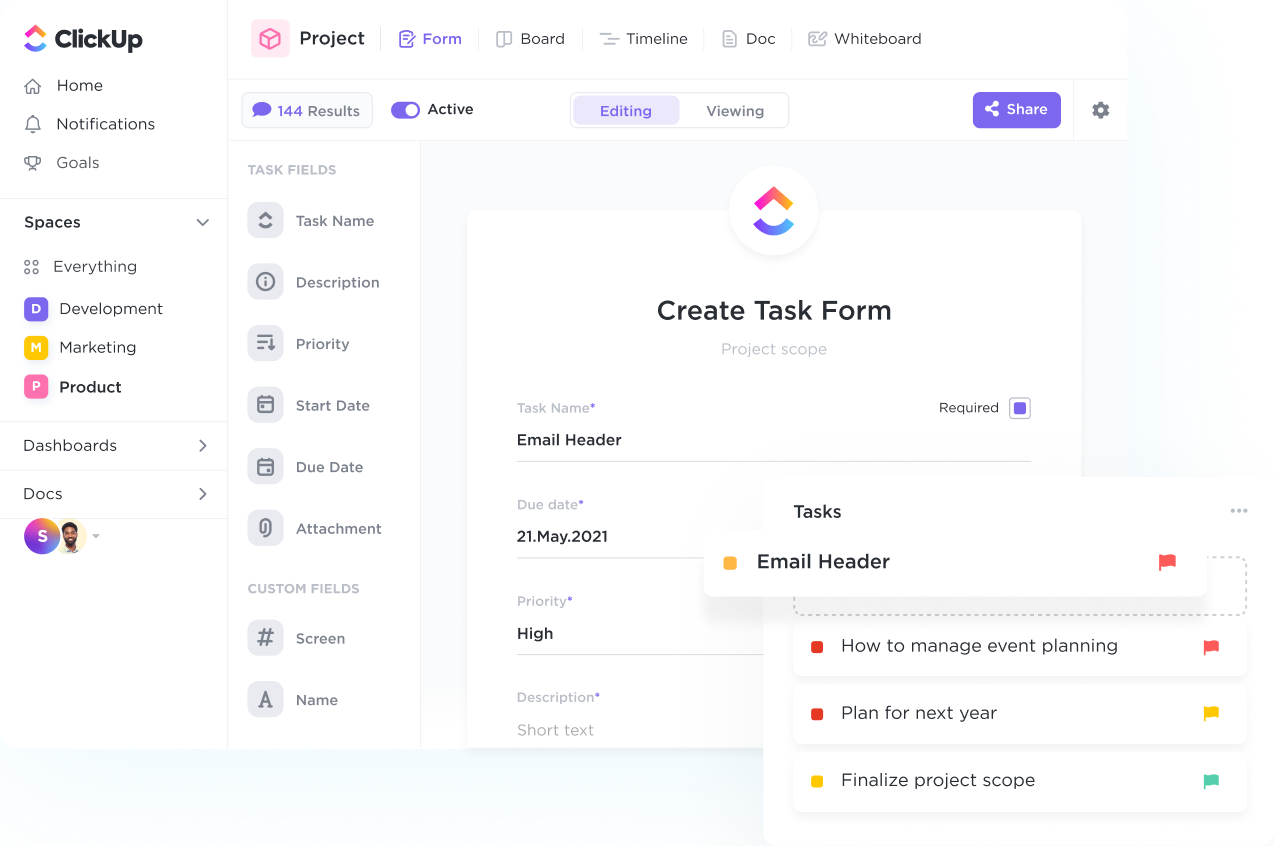Onboard customers and collect info in a snap.
Streamline your intake process, organize response data, and automatically create tasks with custom branded Forms powered by conditional logic.

Streamline your research process and maximize productivity with a customized CRM system powered by ClickUp. Organize your data efficiently, track interactions seamlessly, and enhance collaboration among your research team. Elevate your research capabilities and achieve your goals with ClickUp's user-friendly and versatile CRM solution.
Free forever.
No credit card.
Trusted by the world’s leading businesses
Streamline your intake process, organize response data, and automatically create tasks with custom branded Forms powered by conditional logic.

Eliminate silos and fast-track communication by integrating your emails with ClickUp. Collaborate on deals, send project updates to clients, and onboard customers with a single email hub.

CRMs can assist researchers in managing potential research participants or collaborators by capturing their information, scoring their relevance to ongoing projects, and nurturing these connections through the research process.
Researchers can utilize CRMs to track project progress, allocate tasks to team members, set deadlines, and ensure that research projects stay on schedule and within budget.
By using CRMs, researchers can analyze data on participant behavior, preferences, and interactions with their research studies. This information can provide valuable insights for improving research methodologies and targeting specific demographics for future studies.
CRMs offer researchers a platform for seamless communication and collaboration within research teams. This enables team members to share documents, exchange ideas, and stay updated on project developments in real-time.
Researchers can automate repetitive tasks and workflows using CRMs, ensuring that routine processes such as data collection, participant recruitment, and report generation are streamlined and standardized for increased efficiency.
Key features of CRM software that can benefit researchers include centralized data storage, customizable reporting and analytics, task and project management, collaboration tools, and integration capabilities with research tools and databases.
CRM software helps researchers by centralizing participant or study subject data, tracking interactions, scheduling follow-ups, and segmenting contacts based on various criteria. This enables efficient management, personalized communication, and data-driven insights for improved research outcomes.
Yes, there are CRM software solutions tailored for researchers that can integrate with other research tools and platforms, facilitating seamless data management, collaboration, and productivity in research processes.